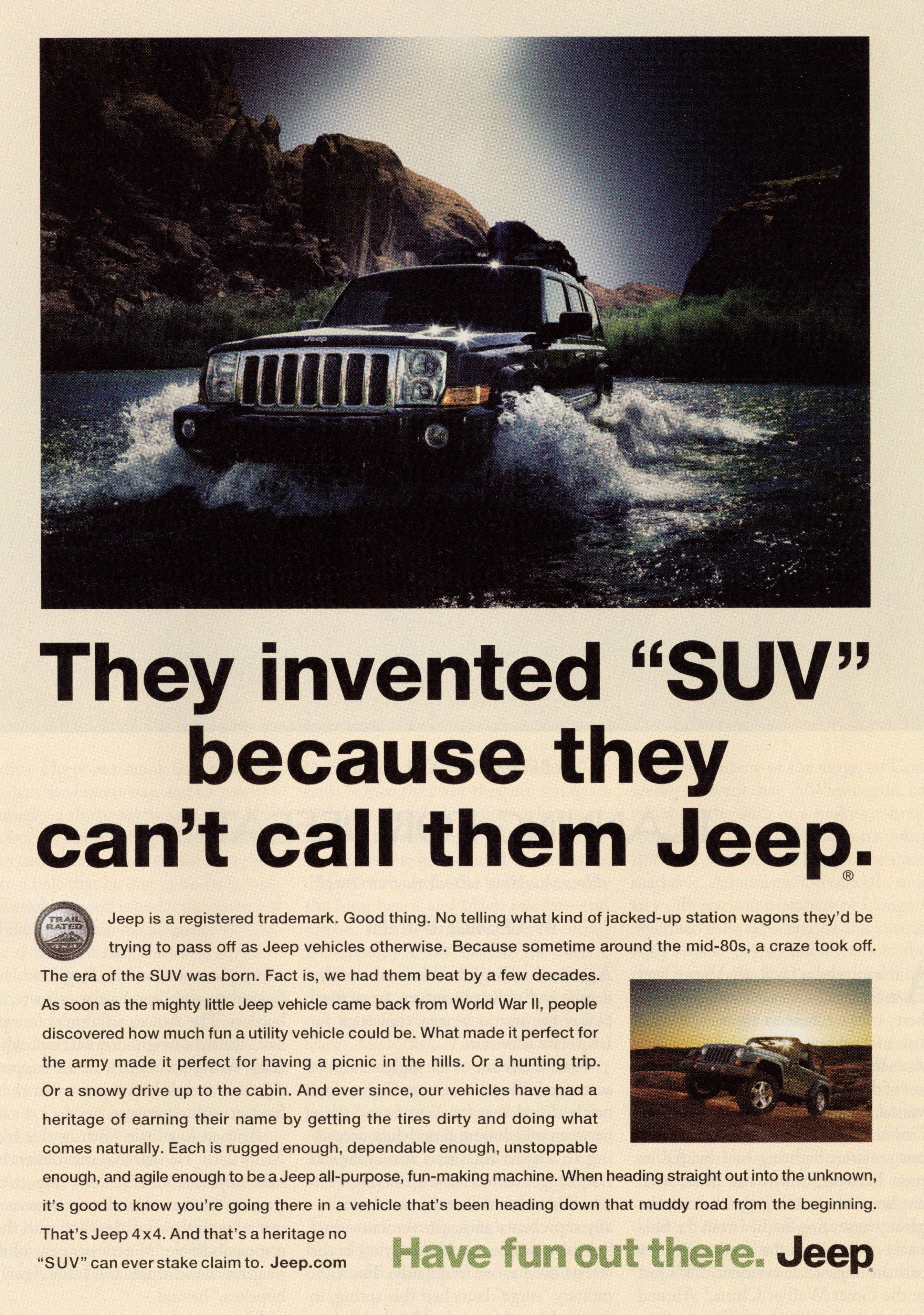Entries from August 1, 2008 - August 31, 2008
Current "Olympic" Naming Problem Was Foreseeable in 1998

Why didn’t Washington State’s Congressional delegation prevent the Ted Stevens Olympic and Amateur Sports Act from granting a monopoly over the word “Olympic” without carving out a broader exception for Washington-based Internet sales?
That’s the question Seattle-area blogger Trish Wareing recently asked.
I think it’s a darn good one.
As previously discussed, the statute excepts trade names and trademarks from the United States Olympic Committee’s monopoly over the term when “it is evident from the circumstances that such use of the word ‘Olympic’ refers to the naturally occurring mountains or geographical region of the same name that were named prior to February 6, 1998, and not to the corporation or any Olympic activity” and “such business, goods, or services are operated, sold, and marketed in the State of Washington west of the Cascade Mountain range and operations, sales, and marketing outside of this area are not substantial.”
The last phrase is what’s unhelpful: “and … sales, and marketing outside of this area are not substantial.” Nowadays, everyone markets everywhere through the Internet. Couldn’t Washington’s legislators have figured that out when the statute was revised in 1998, and nipped this problem in the bud?
Ms. Wareing writes:
“As a Washington State resident and small business owner, I’m outraged that Washington State’s Congressional delegation was asleep at the wheel when this little ‘stay in Washington State’ clause was allowed to slip through unchallenged in the Stevens Act. Western Washington State is a tech savvy place. It is the home of Amazon.com (not to mention Microsoft and innumerable other dot coms, past and present). Was the value of internet marketing (especially for a growing small business) that obscure in 1998? If so, how come Amazon CEO Jeff Bezos was Time’s Man-of-the-Year in 1999?”
That’s a great point. Failing to foresee the havoc the statute would cause Washington’s many Olympic-named businesses when the statute was first enacted in 1978? Understandable.
But failing to foresee it when the statute was revised in 1998? Unforgivable.
Clever graphic: BlogFromAHermit.com
AAA Sues AAA over AAA
 On Aug. 22, the American Automobile Association filed a trademark infringement suit in the Western District against Tacoma-based AAA Insurance Inc.
On Aug. 22, the American Automobile Association filed a trademark infringement suit in the Western District against Tacoma-based AAA Insurance Inc.
The mark at issue? Take a wild guess.
Plaintiff registered AAA as a trademark in 1967 for “automobile association services”; AAA LIFE INSURANCE COMPANY in 1978 for “underwriting of life and accident services”; AAA GUARANTEED LIFE in 1989 for “life insurance underwriting services”; and AAA and Design in 1998 for “adjusting and collecting insurance damage claims” and “insurance brokerage services.”
Plaintiff complains that defendant’s use of AAA in connection with competing insurance services, and the use of its aaainsure.com domain name to solicit customers, has caused actual consumer confusion and is likely to cause additional consumer confusion.
Defendant has not yet answered plaintiff’s complaint.
AAA started as a weak trademark but through the magic of secondary meaning and incontestability, I would say it’s now quite strong.
The case cite is American Automobile Association v. AAA Insurance Inc. (No. 08-5515).
The Doors of the 21st Century Must Pay Damages for Using The Doors Name
 On Aug. 13, the California Supreme Court declined to consider an appeal involving ex-members of The Doors and the damages they were found to have caused by touring in 2003 as The Doors of the 21st Century, Law.com reports.
On Aug. 13, the California Supreme Court declined to consider an appeal involving ex-members of The Doors and the damages they were found to have caused by touring in 2003 as The Doors of the 21st Century, Law.com reports.
The article states the decision (or lack thereof) cemented the $3.2 million in damages that keyboardist Ray Manzarek and guitarist Robby Krieger must pay drummer John Densmore, the parents of the deceased lead singer Jim Morrison, and the parents of Mr. Morrison’s deceased wife.
Messrs. Manzarek and Krieger could be liable for another $2 million in attorney’s fees. An appellate court is considering their appeal that the award was excessive.
In the suit, Mr. Densmore said he didn’t object to Messrs. Manzarek and Krieger playing The Doors songs, as long as they didn’t call themselves The Doors or use the former band’s logo and imagery.
Messrs. Manzarek and Krieger made use of The Doors’ name, logo, and imagery anyway in 2003 when they went on tour with Ian Astbury, former lead singer of The Cult. The tour netted $3.2 million, none of which went to the plaintiffs.
Their doing so was found to have breached the band’s written contract requiring unanimity on business decisions.
In March, the Ninth Circuit found in Mr. Manzarek’s favor in a bad faith claim stemming from his insurers’ refusal to pay the plaintiffs’ damages award. (STL post here.)
Chrysler's Ad Tells Consumers Its JEEP SUVs Are Special, Not Generic

My reading isn’t exactly up to date. Yesterday I came across this ad in the Sept. 17, 2007, issue of The New Yorker. The text reads:
“They invented ‘SUV’ because they can’t call them Jeep®.
“Jeep is a registered trademark. Good thing. No telling what kind of jacked-up station wagons they’d be trying to pass off as Jeep vehicles otherwise. Because sometime around the mid-80s, a craze took off. The era of the SUV was born. Fact is, we had them beat by a few decades. As soon as the mighty little Jeep vehicle came back from World War II, people discovered how much fun a utility vehicle could be. What made it perfect for the army made it perfect for having a picnic in the hills. Or a hunting trip. Or a snowy drive up to the cabin. And ever since, our vehicles have had a heritage of earning their name by getting the tires dirty and doing what comes naturally. Each is rugged enough, dependable enough, unstoppale enough, and agile enough to be a Jeep all-purpose, fun-making machine. When heading straight out into the unknown, it’s good to know you’re going there in a vehicle that’s been heading down that muddy road from the beginning. That’s Jeep 4x4. And that’s a heritage no ‘SUV’ can ever stake claim to.”
It’s interesting when companies use scarce advertising dollars to tell consumers not only to buy their products, but also to use their trademarks in the proper way. (See other STL posts on this subject from June 5, 2007 and Oct. 25, 2007.)
This ad does both quite well: “SUV is generic and not special. JEEP is not one of those ordinary SUVs. It denotes a special type of SUV, the original SUV, the one we make. It’s a difference worth taking note of. A difference worth paying for.”
Now, in the year since this ad was published, gas prices have spiked above $4 per gallon and SUVs have fallen out of favor. Chrysler, LLC, has bigger things to worry about than its well-known trademark becoming generic.
It remains to be seen whether Chrysler can address those bigger problems as effectively as I think it addresses this one.
Ninth Circuit Finds Contempt Order Not Immediately Appealable
On Aug. 20, the Ninth Circuit decided Koninklijke Philips Electronics, N.V. v. KXD Technology, Inc., involving the appealability of a contempt order stemming from the violation of a temporary restraining order and preliminary injunction.
The District of Nevada granted the plaintiff injunctive relief enjoining the defendants from selling any product that infringed the plaintiff’s registered trademarks. The court also ordered the defendants to file a report setting forth their inventory of counterfeit goods and another report detailing how they have complied with the preliminary injunction.
Within the next year, it became clear to the district court that the defendants had no intention of complying with those orders. The defendants filed no reports, even after the plaintiff moved for sanctions.
In response, the court granted plaintiff’s motion, holding the defendants jointly and severally liable to the plaintiff for $353,611.70 in attorney’s fees, $37,098.14 in seizure and storage costs, $1,284,090.00 in lost royalties, and $10,000 per day until the reports were filed beginning 14 days after the order was entered.
The defendants appealed these sanctions to the Ninth Circuit. The plaintiff argued that such an interlocutory appeal was impermissible and the Ninth Circuit lacked jurisdiction to hear it.
The court first considered whether the contempt order was civil or criminal. If civil, the court had no jurisdiction until the decision became part of a final judgment. If criminal, however, the court had immediate jurisdiction because criminal contempt orders are appealable when entered.
The court noted the “distinction between the two forms of contempt lies in the intended effect of the punishment imposed. The purpose of civil contempt is coercive or compensatory, whereas the purpose of criminal contempt is punitive.”
The court found the contempt order was civil and, therefore, not immediately appealable.
“The attorney’s fees, lost royalties, and storage costs were assessed in order to compensate the plaintiff for losses sustained. Furthermore, the per diem fine was not to be assessed until fourteen days after the entry of the order, and the defendants could avoid paying the fine by complying with the terms of the injunction. Because the per diem fine allowed the defendants the opportunity to purge the contempt before payment became due, it was a civil sanction.”
The court also found on policy grounds that “holding that a civil sanction is directly appealable if it is immediately payable risks eviscerating the fundamental rule that compensatory sanctions are civil and not appealable on interlocutory review. Further, we note that defendants will have the opportunity to appeal the sanctions imposed after a final judgment. In sum, we are not persuaded that the defendants face irreparable harm and, in any event, find that, because of the defendants’ conduct, any risk of harm is appropriately placed upon them.”
The case cite is Koninklijke Philips Electronics, N.V. v. KXD Technology, Inc., __ F.3d __, 2008 WL 3852719, No. 07-15310 (9th Cir. Aug. 20, 2008).
